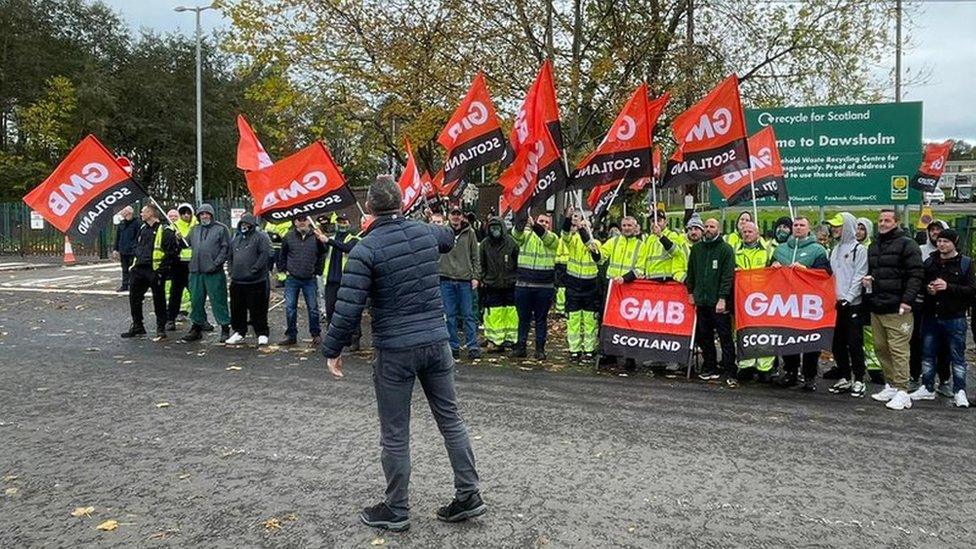Council workers to vote on strike to shut Scotland's schools
- Published

Unison said it wanted to shut schools when pupils return after the summer holiday
Council workers across Scotland are being balloted for a strike over pay that could shut schools and nurseries after the summer break.
About 25,000 staff working in schools, nurseries, waste and recycling centres will be asked to consider industrial action.
The Unison, Unite and GMB unions said they were urging members to vote to strike after Finance Minister Kate Forbes refused an offer of "last-ditch talks".
The ballot will close on 26 July.
The unions said they had called for a summit with Ms Forbes and First Minister Nicola Sturgeon in a bid to avoid strike action.
Ms Forbes wrote to Unison on Thursday and said "it would not be appropriate to interfere in these negotiations, given their devolved nature" and "respectfully declined" a meeting proposed by Cosla, the local authority body.
Unison said it intended to shut schools across Scotland when children return after the school summer break in August.
The unions also said strike action could leave waste "piling up in the streets" if workers did not get a pay increase of more than the "miserly" 2% that was currently being offered.


A "summer of discontent" may be a bit of a cliché - but that doesn't mean it's not true.
That's what could be on the cards, with frustration boiling over for council workers.
They are angry at the 2% pay increase on offer from their employer, represented by the council umbrella body Cosla.
Three big unions - GMB, Unite and Unison - are balloting their workers this week and believe they will vote for industrial action.
They want an "inflationary increase" - but by one measure that's 11.1%.
Cosla are essentially saying no way - and blame the Scottish government for a tight budget.
Ministers are saying it is a matter for Cosla and face tight budgets themselves.
This comes as teachers want an inflationary rise too - and nurses are angry at slow progress with their pay.
The trouble is train drivers secured a 5% rise and others are looking at that as at least a benchmark.
The government's keen to stress that only 2.2% of that is essentially public sector cash.
Everyone's struggling, everyone's frustrated and money is tight everywhere.
It really could be a summer of discontent as workers eventually express their frustration out on picket lines.

'Keep society running'
Johanna Baxter, the Unison union's head of local government, said the 2% offer did not come close to compensating for the cost of living crisis or the loss in the value of their pay following real-terms pay cuts over a decade of austerity.
She said: "This comes on the back of the Scottish government announcing cuts to public services that Margaret Thatcher would be proud of in their recent spending review."
"The fact they will not sit down with Cosla and the trade unions to try and find a solution is a kick in the teeth to all local government workers.
"They have forgotten already who was educating our children, cleaning our communities, caring for our vulnerable and burying our dead throughout the pandemic. Local government workers keep society running."
Meanwhile, the GMB pointed to a 5% deal agreed between ScotRail - which was nationalised by the government in April - and train drivers' union Aslef as proof that the 2% offer for council workers was "paltry".
GMB Scotland senior organiser Keir Greenaway 2% was "worth less than a tenner a week extra for staff earning under £25,000 a year" and was therefore "neither credible nor acceptable".
He said: "It is clear the only language our political leaders understand is action. That is why we are recommending our members vote yes for strikes in our local government ballot."
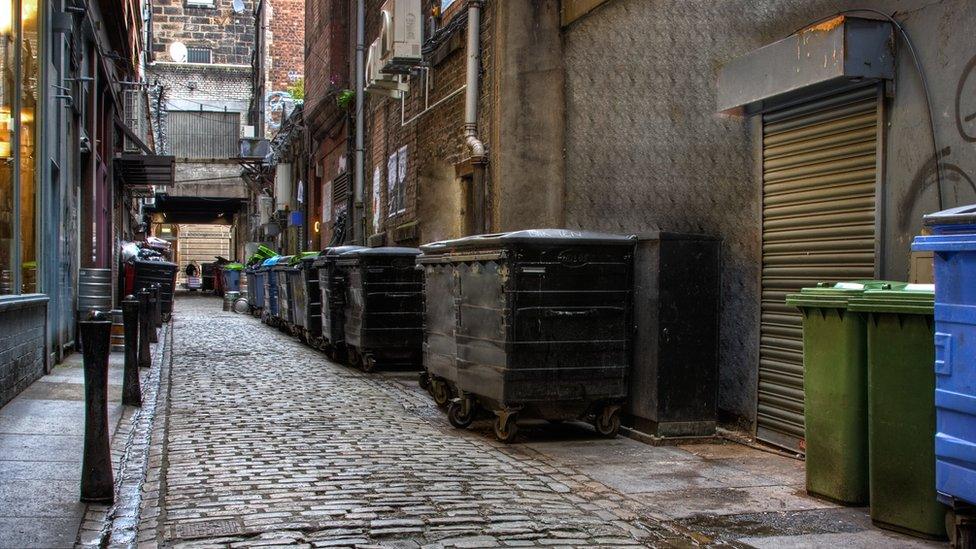
Waste and recycling teams are being balloted on the strike action
The Scottish government said pay settlements for council workers - apart from teachers - are the responsibility of Cosla and are determined through negotiations at the Scottish Joint Committee (SJC).
A spokesman said: "As it is not a member of the SJC, the Scottish government cannot intervene in pay negotiations, which are for the trade unions to negotiate with Cosla.
"Council staff play a crucial role in our communities as we rebuild the economy following the pandemic.
"We would encourage the parties to maintain dialogue and stay at the table to reach agreement."
Cosla said it "valued the essential roles that all local government workers carry out on a daily basis" and remained in active discussions with trade unions.
But it said it was "deeply disappointed" that the first minister and finance secretary had refused the request by council leaders to engage in discussions over the current funding settlement for local government and its impact on the ongoing pay negotiations.
Cosla finance spokeswoman Gail Macgregor said the current budget settlement for local government "limits the options" for successfully resolving the dispute.
Ms Macgregor said: "No increase in our core funding damages these services and limits the options we have in successfully concluding pay negotiations.
"Refusal to engage in discussion will only see this continue and our communities will see and feel the difference."
Related topics
- Published18 May 2022
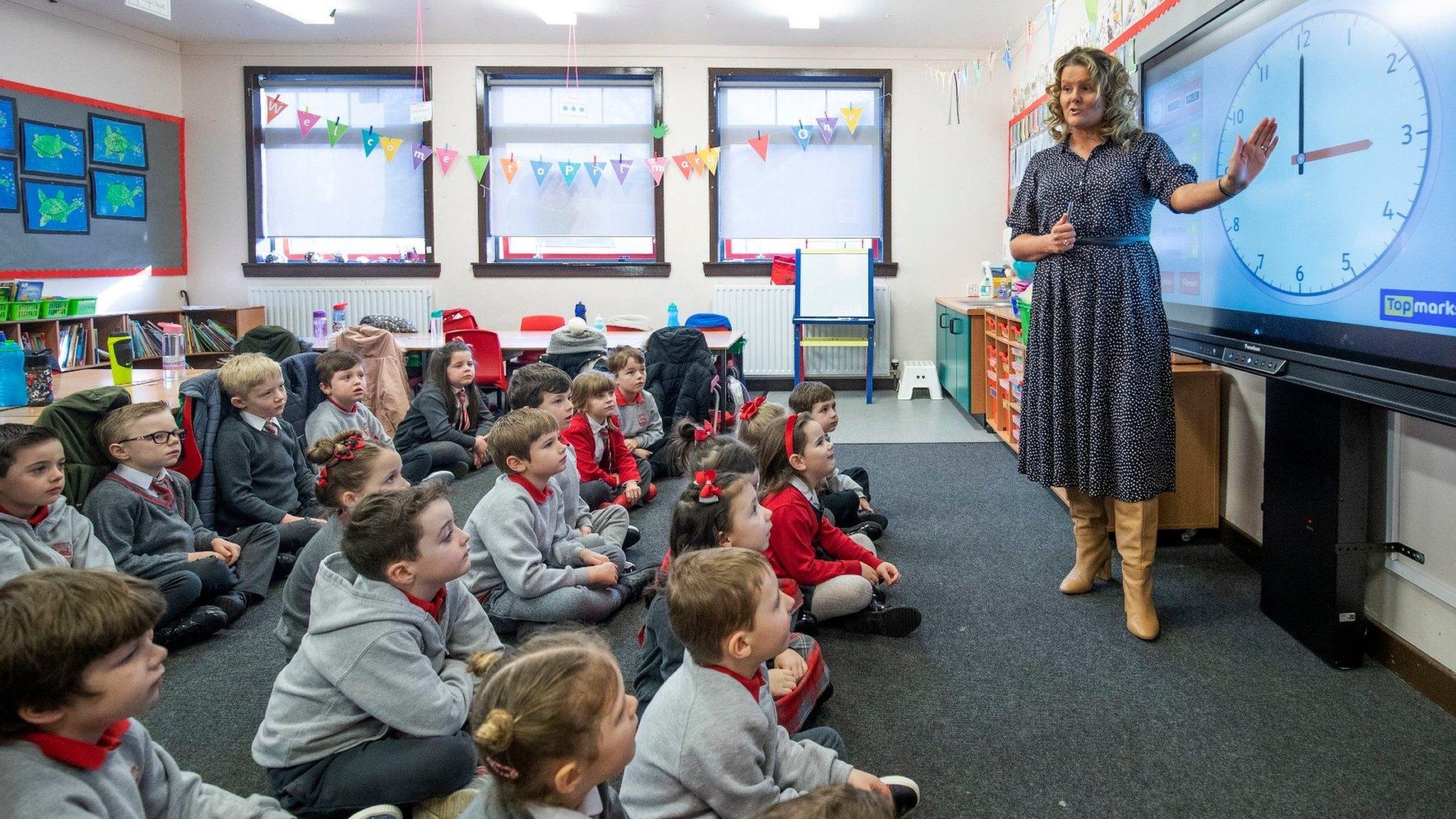
- Published13 April 2022
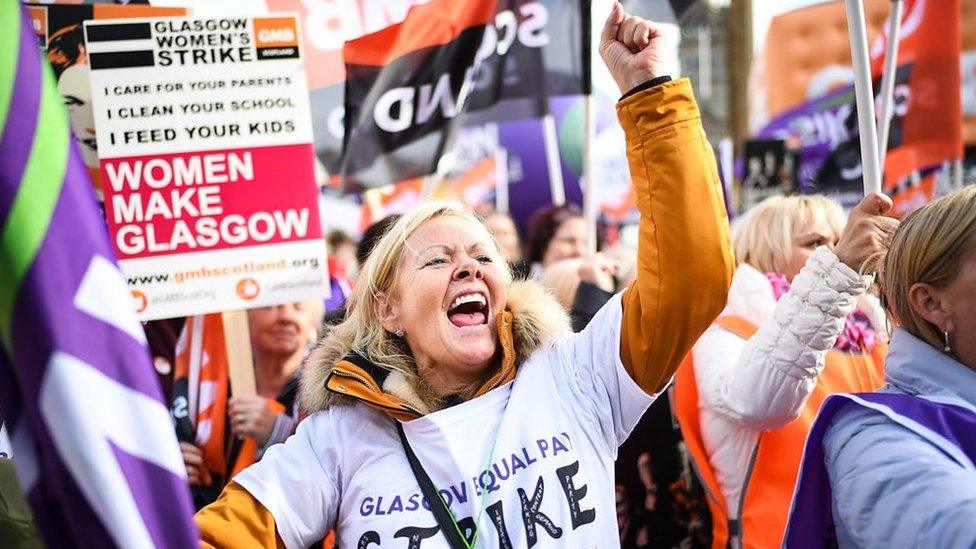
- Published27 January 2022
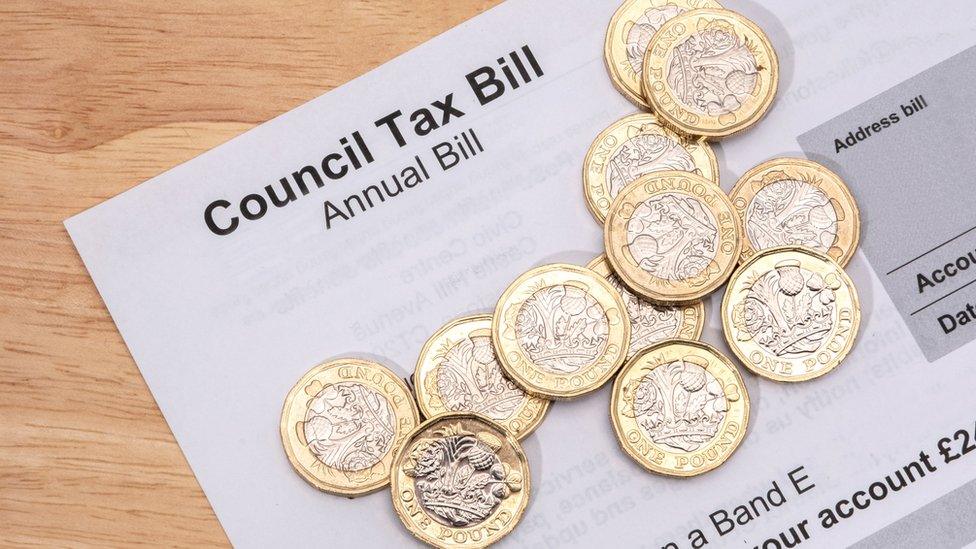
- Published1 November 2021
